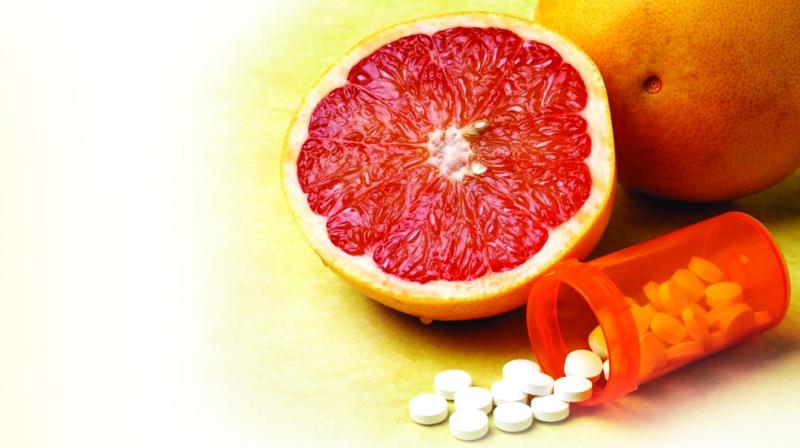Patients cautioned on food-drug interactions
Diet awareness vital with emergence of lifestyle diseases.

Hyderabad: Medicines can interact with certain biochemicals in the food which can have different outcomes including reduced or lack of absorption of drugs and side effects.
With supplements and medications for lifestyle diseases becoming a part of daily life, it is important to understand the interaction of drugs with various foods.
There are five common foods whose drug interactions have been studied and well documented. These are grapefruit juice, green leafy vegetables, natural black licorice, salt substitutes and tyramine-containing foods. These foods affect people who are on medication due to their diseases and most often the importance of looking out for food and drug interaction is not explained to them.
Dr Fatima Tahniyath, clinical pharmacologist, said that with the increase in lifestyle diseases, people were being often counselled that they must opt for more fruits and vegetables in their diet to bring down the cholesterol levels, reduce obesity and other co-morbid conditions.
“What has been found is that the supplements and medications interact with the food and often people are not aware of this. It is only when they constantly complain that there is no change despite medication that a further probe into their food intake is done,” Dr Tahniyath said.
The problem is that it is not possible to give a one-size-fits-all regimen as different groups of people will react differently. Food category tryamine is found in large amounts in smoked meats, fish, sausages, aged cheese, overripe fruits. Tryamine is found to increase blood pressure in patients who are taking monozmine oxidase inhibitors and medications for Parkinson's disease. Dr V. Anjaneya Charyulu, senior clinical pharmacologist, explained, “We are prescribing calcium to older patients and these supplements can interact with spinach and leafy vegetables. Dairy products do not go well with antibiotics which contain tetracycline, doxycycline and ciprofloxacin.”
Dr Charyulu said most of the medicines have chemicals which are biosynthesized, hence their effect on the natural biochemical in food is different. “Similarly, we have an intake of herbal powders for digestion, acidity, constipation and other problems. But their interaction with food and drugs in the body is raising different challenges,”he said.
The pharmacology department has only recently been given importance in the medical industry as the different drug interactions are being closely studied. Experts state that there are five main categories which have been identified so far and it is very important for people on medication to know about them.

